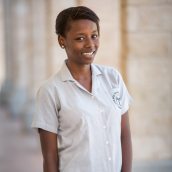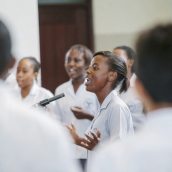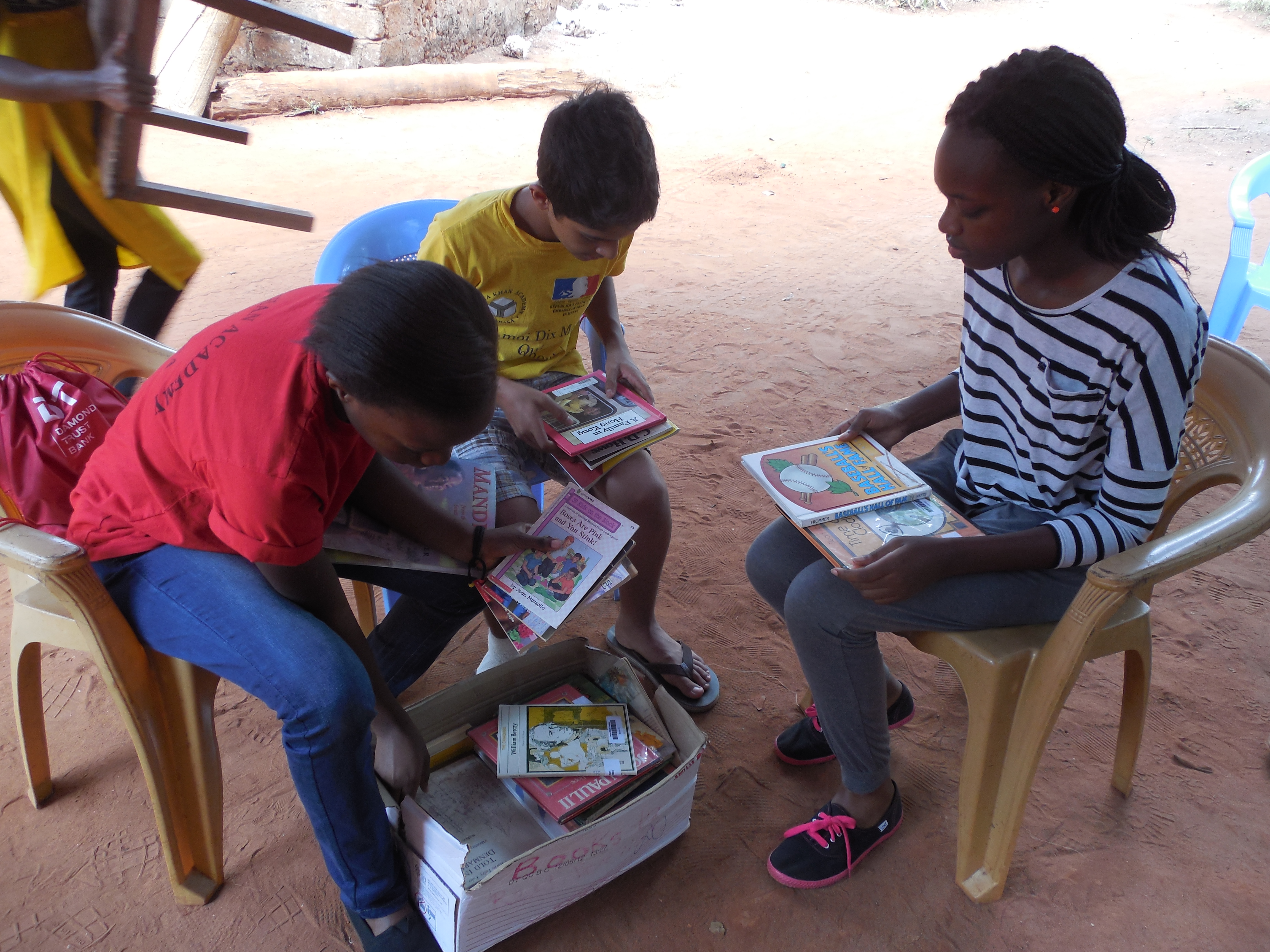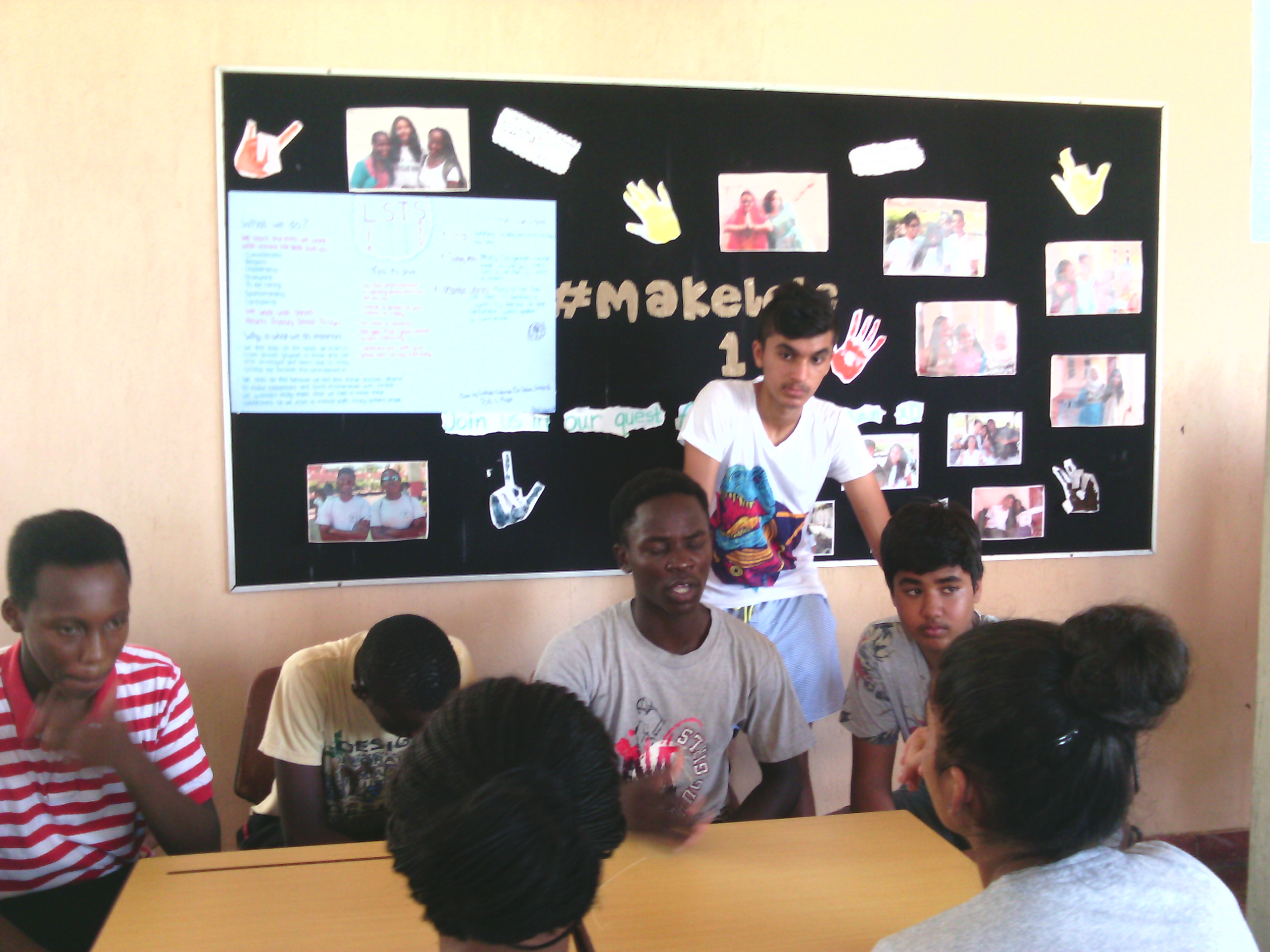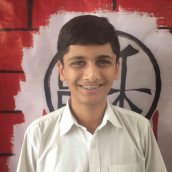Dining Services Menu 2 and 4 - Bird Flu
The Academy's dining services provide a varied menu throughout the week. We aim for meals to be nutritious and delicious and for mealtimes to be an important aspect of Academy life.
Menu for 25 May–31 May 2015
Monday |
||
BreakfastCornflakes
Mid-morning snack: |
LunchGobi masala Evening snack:
|
DinnerDal tadka |
Tuesday |
||
BreakfastCheeku fruit Mid-morning snack: |
LunchPaneer butter masala Evening snack: |
DinnerKadai paneer |
Wednesday |
|
|
BreakfastBanana flakes Mid-morning snack: |
LunchSoya biryani Evening snack: |
DinnerCrispy veg |
Thursday |
|
|
BreakfastBanana Mid-morning snack: |
LunchBhaji Evening snack: |
DinnerTawa veg dry |
Friday |
|
|
BreakfastCornflakes Mid-morning snack: |
LunchAloo jeera Evening snack: |
DinnerPaneer tikka masala |
Saturday |
|
|
BreakfastMelon Mid-morning snack: |
LunchBlack channa masala Evening snack: |
DinnerChole masala
|
Sunday |
|
|
BreakfastChocos Mid-morning snack: |
LunchChole biryani Evening snack: |
DinnerPaneer masala |
Dining Services Menu 1 and 3
The Academy's dining services provide a varied menu throughout the week. We aim for meals to be nutritious and delicious and for mealtimes to be an important aspect of Academy life. We are committed to providing balanced vegetarian and non-vegetarian options for all meals.
Menu for 29 August – 4 September 2016
Monday |
||
BreakfastCornflakes Mid-morning snack: |
LunchChicken methi Evening snack: |
DinnerSeasonal veg dry
|
Tuesday |
||
BreakfastStrawberry cornflakes Mid-morning snack: |
LunchRajma curry Evening snack: |
DinnerSeasonal veg masala |
Wednesday |
|
|
BreakfastHoney cornflakes Mid-morning snack: |
LunchVeg biryani Evening snack: |
DinnerMix veg khorma |
Thursday |
|
|
BreakfastChoco cornflakes Mid-morning snack: |
LunchChicken manchurian Evening snack: |
DinnerChicken pasanda |
Friday |
|
|
BreakfastHoney cornflakes Mid-morning snack: |
LunchUttapam Evening snack: |
DinnerSeasonal veg masala
|
Saturday |
|
|
BreakfastCornflakes |
LunchNavratna khorma Evening snack: |
DinnerEgg omlette curry
|
Sunday |
|
|
BreakfastCornflakes
|
LunchKadai chicken Evening snack: |
DinnerChicken fried rice |
Dining Services Menu 2 and 4
The Academy's dining services provide a varied menu throughout the week. We aim for meals to be nutritious and delicious and for mealtimes to be an important aspect of Academy life. We are committed to providing balanced vegetarian and non-vegetarian options for all meals.
Menu for 5–11 September 2016
Monday |
||
BreakfastCornflakes Mid-morning snack: |
LunchChicken khorma Evening snack:
|
DinnerSeasonal veg dry |
Tuesday |
||
BreakfastHoney cornflakes Mid-morning snack: |
LunchCholle Evening snack: |
DinnerEgg bhujia curry |
Wednesday |
|
|
BreakfastStrawberry cornflakes Mid-morning snack: |
LunchVeg biryani Evening snack: |
DinnerVeg niligiri khorma |
Thursday |
|
|
BreakfastChoco cornflakes Mid-morning snack: |
LunchMushroom veg khorma Evening snack: |
DinnerEgg roast curry |
Friday |
|
|
BreakfastChoco cornflakes Mid-morning snack: |
LunchGrilled chicken with brown sauce Evening snack: |
DinnerSeasonal veg dry |
Saturday |
|
|
BreakfastCornflakes Mid-morning snack: |
LunchChicken chettinad Evening snack: |
DinnerNutri veg masala
|
Sunday |
|
|
BreakfastCornflakes |
LunchButter chicken Evening snack: |
DinnerChilli chicken |
Mary Favour (Class of 2015): Ambitions to build a better future
For a while, getting an education was a process for Mary Favour. She would rise early in the dark – at 4:00 am – and make the long trek to school on foot with her three siblings, arriving at around 6:30 am each day. By the time they returned home to Mombasa, it was 7:00 pm. The rest of the evening was spent helping their mother around the house and finishing their homework.
It wasn’t easy, Mary recalled.
“My sisters and I grew up with a single mother,” she said. And resources were tight.
When the electricity bill wasn’t paid, the Favour children would study under the dim glow of a kerosene lamp or by candlelight. The four siblings had limited school supplies and relied on Mary for many of their study materials.
“We got awarded books if we topped the class,” she explained. “Sometimes we’d get textbooks, other times we’d get storybooks or novels. It was an incentive that the teachers had to motivate students.”
A new opportunity at the Aga Khan Academy Mombasa
Despite the obstacles, Mary said her mother was determined for her to succeed. She pooled her resources to give Mary a much-needed laptop in grade 9. By then, things had begun to turn around – Mary had received a full scholarship to study and live at the Aga Khan Academy Mombasa as part of its Talent Identification Programme, a programme that provides students from more disadvantaged backgrounds the opportunity to attend the Academy on full scholarship. She would graduate in 2015 and go on to study at the University of Toronto in Canada, also on full scholarship.
Now a second-year student at university, Mary hasn’t forgotten her difficult upbringing or her roots. In fact, the struggle to get an education early on has instilled in her a strong desire to give back to her community and help others like her get a shot at a better life.
“Six years of growth, skill and a good education” at the Academy was “a gift,” Mary said. “I want to [give] a gift to someone else.”
In particular, she’s learned the importance of independence, humility and sacrifice – lessons she put to use during her Academy days.
Mary joined the Aga Khan Academy in 2009 as part of the first batch of students in the Talent Identification Programme. While there, she participated in a range of activities, including choir, soccer and debate, with the same level of perseverance her mother had taught her. She quickly excelled academically, becoming an honors student in grade 10, and also challenged herself in extracurriculars – musically in competitions and as the assistant captain of her hockey team.
Helping others through community service
Beyond this, Mary fostered a passion for community service and activism rooted in her desire to help outsiders fit in. She led the ‘Just Say No’ initiative, a programme focused on rehabilitating primary school girls in Mombasa who had turned to prostitution in large part to support their families financially.
She worked with these girls for three years, exposing them to the same opportunities she and other students had the privilege of in their own education, including sports and debate. She hosted workshops on public speaking and art, as well as sessions with counsellors and strong female mentors, and invited the girls to perform at the Academy’s talent competition.
“The aim was to help them feel integrated into society but at the same time equip them with skills that would make their education holistic,” Mary said. The mission was especially important, she said, because of the gender gap she saw in Mombasa’s primary schools and the way in which this unfair system contributed to larger problems down the line.
“That inequality creates an imbalance that marginalizes women in our society,” Mary said.
Under her leadership, the club received three awards and became one of the most successful student groups on campus.
Supporting other students to succeed
In addition, Mary founded the ‘I Know Who I Am’ initiative, a programme that integrates scholarship students like herself into the Academy community while understanding that they needed to “stay in touch with home and not forget their society,” as Mary explained.
“I wanted to celebrate the diversity that came with these students but at the same time make sure that they don’t lose themselves,” she said. So she ran workshops on pluralism and open-mindedness, ate food and played games the students would recognise from home and “held discussions on what it meant to be part of a community but remain true to yourself.”
In the summer of 2017, Mary interned with the Students for International Development. The non-profit organisation was founded and is run by students. While there, she worked with the Orphan Sponsorship Programme as project manager for about two months. Mary and her team focused on the Simboyi Primary School in Vihiga, in the west of Kenya. They were in charge of the remedial education project for orphans and also worked on projects to support students financially.
After conducting interviews with some of the students in Vihiga, Mary and her team developed a means by which to help them be better equipped to reach their full potential. According to Mary, a number of the students came from families that were struggling to make ends meet. Some, she recalled, told her they only had one meal per day, which usually consisted of just ugali or porridge. Others said they didn’t eat at all. Further, a number of those who performed well in class were unable to pay for their exams and had to sit them out instead.
With Mary’s help, the organisation created a scholarship to help these students. The award, which she said covers basic health care, one meal a day, a yearly uniform and exam fees, will be able to assist 55 students during the current academic year at Simboyi. The hope is that the sponsorships will continue into the next year if budget and fundraising allow.
Real-time results and change like this mean the world for Mary, not least because she knows firsthand what it’s like to have the academic situation and resources not in your favour.
“I was a child with big dreams and no way of actualising them until I joined the Academy,“ she said. “I want to be for someone else what the Academy was to me.”
Catalyzing change for a better future
Mary believes education is one of the best tools to rid our societies of poverty, and she’s determined to be in a position to support students so they have better paths forward at their disposal than what she had. That’s why she plans on returning to Kenya after she’s obtained the necessary experience and skillset to properly give back to her country and community.
Currently majoring in human geography and diaspora and transnational studies and minoring in African studies, Mary thinks that, through the study of cultures and international development, she can better understand how to bridge the gap between rich and poor at home. Her hope is to protect the rich cultural diversity of Kenya but also contribute to changing the country so that it is better able to develop and sustain itself and compete and interact on a global scale more effectively.
“Kenya is at such a pivotal moment in the making of African history,” she said. “It has so much potential. I just want her to maximize her potential. I want to help her do it.”
Mary is uniquely positioned to kickstart such a change at home. Her pluralistic perspective on the world and passion for country could be just what Kenyans need to motivate their leaders to be better and to take action to institute real change. And if her triumphs at the Academy are any indication, Mary’s motivation may just be contagious.
By Farah Mohamed
Sazil Ramani – an ‘Academy advocate’ for service and social change
– Sazil Ramani, grade 10, Aga Khan Academy Hyderabad.
Sazil joined the Academy at its inception in 2011 and has since discovered many passions and predilections. “After coming here, I realized that I have a talent for photography, and am pretty good at design too. This year, I got to not only act in the annual summer productions as part of our drama class but also designed the posters and brochures. The Academy has given me many opportunities to prove myself, and I am sure this will help me in choosing a career in the future.”
His favourite subject is science, because he likes discovering new things, especially with regard to the realities of life and our surroundings. In particular, he enjoys scientific pursuits because they provide appropriate evidence to back the claims they make, and this makes it possible to persuade others towards positive social, economic and political change. Sazil aspires to be a mechanical engineer.
“As I am a residential student, I get a lot of opportunities to experience different aspects of life at the Academy,” says Sazil. “What I find most unique is the studious and peaceful environment, the greenery around us, the people from different backgrounds and cultures living with us, the facilities provided and the number of opportunities we get to prove our talents.”
Sazil’s biggest role model is His Highness the Aga Khan. “His hard work and dedication, his vision of a better world and his mission to improve the quality of life of those less fortunate. I have a similar vision and that’s why he inspires me.”
Watch a video Sazil made compiling visual anecdotes of diverse service experiences of his classmates and himself at various government school sites.
Jemin Patel (Class of 2018): A journey of hard work, passion and striving for excellence
Jemin Patel’s journey to where he is now is the result of hard work and passion, values he picked up during his time at the Aga Khan Academy Hyderabad. Yet his story started sometime before this, when he was selected to attend the large, 100-acre Academy through a full scholarship.
Starting in the Academy as a Grade 8 student, Jemin felt all the nervousness of moving to a new place and starting at a new school. He felt out of place, not knowing whether he would succeed. Although he knew this would be difficult, he embraced the notion of working hard, instead of working smarter.
“I’ve learnt that hard work always wins,” he said. “People say, ‘work smart, not hard’. I could not disagree more. Working smart makes you efficient, whereas working hard with a focused mindset makes you a high performer.”
Although it has been five years since he graduated, Jemin continues to visit the Academy to coach and interact with students. He expressed how he felt like a big brother passing on the torch and imparting wisdom he would have loved to have during his time at the Academy. During his most recent visit, Jemin met the founder of the newly formed SAGE (Sexuality and Gender Expression) club at the Academy and felt so proud of the students.
Now, working at one of Canada’s top accounting and consulting firms, Ernst & Young, specialising in audit and assurance services, Jemin still stands by the notion, “hard work always wins.”
“It’s not about perfection, it’s about striving for excellence,” he said. “Putting in a focused and genuine effort into everything you do is all that matters.”
Interview conducted by DP2 student Samhitha Paruchuri from the Aga Khan Academy Hyderabad.
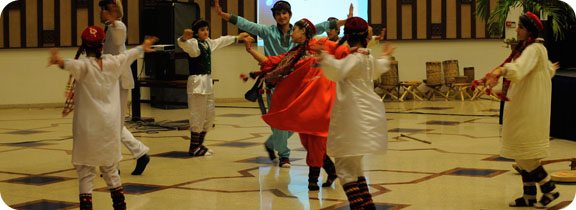
International Exchanges
As the network of Aga Khan Academies becomes further established, we will offer our students the opportunity to broaden their experience through exchanges with other Academies.
The Aga Khan Academy Mombasa will include an international exchange programme as part of the Senior School curriculum. This will provide our students with the opportunity to study for an extended period in another of the 18 Academies (planned or currently under development) in Africa, South and Central Asia, and the Middle East.
An inaugural programme is planned for the 2018-19 academic year for grade 9 students at the Aga Khan Academy Mombasa and the Aga Khan Academy Hyderabad. The programme will grow over the coming years, drawing in more Academies as they open and giving students the opportunity to experience life in a range of different countries and cultures.
Campus life
Students from Mombasa who participate in an exchange with another Academy will live in residential facilities in a secure campus setting.
Campus life is an important part of the international exchange programme. Many of the least tangible but most important elements of an education – the development of practical leadership skills, the capacity to make ethical judgments, the ability to navigate through complex cultural settings – are formed outside the classroom. Mealtimes and other informal gatherings offer opportunities for discussion, meetings, and study groups.
The exchange will offer a structured programme of activities, both on and off-campus. This is designed to increase students’ understanding of their own and other cultural identities, to recognise different components of culture, to interact with the local community through service learning, and to reach a comparative understanding of the process of development in another country.
Benefits of study abroad
The International Baccalaureate programme is implemented through the medium of English at all Aga Khan Academies. The common curriculum will allow students to study abroad without facing uncertainties regarding compatibility of course study or examinations. Students will also learn to appreciate and respect other nationalities, cultures and intellectual traditions through direct contact with people in other countries. They will broaden their worldview and learn to be at ease in different cultural settings.
The exchange will increase students’ willingness and ability to collaborate across borders and cultures, as they form networks of friendships across the world. It will build the strength of character necessary for ethical and pluralistic leadership. Students will develop greater adaptability and resilience as they learn to overcome the challenges of living in a new cultural setting with local peers.
For further information on the educational programme offered at the Aga Khan Academy Mombasa, please visit the Academic Programme page.

International Exchanges
As the network of Aga Khan Academies becomes further established, we will offer our students the opportunity to broaden their experience through exchanges with other Academies.
The Aga Khan Academy Dhaka will include an international exchange programme as part of the Senior School curriculum. This will provide our students with the opportunity to study for an extended period in another of the 18 Academies (planned or currently under development) in Africa, South and Central Asia, and the Middle East.
An inaugural programme is planned for the 2018-19 academic year for grade 9 students at the Aga Khan Academy Mombasa and the Aga Khan Academy Hyderabad. The programme will grow over the coming years, drawing in more Academies as they open and giving students the opportunity to experience life in a range of different countries and cultures.
Campus life
Students from Dhaka who participate in an exchange with another Academy will live in residential facilities in a secure campus setting.
Campus life is an important part of the international exchange programme. Many of the least tangible but most important elements of an education – the development of practical leadership skills, the capacity to make ethical judgments, the ability to navigate through complex cultural settings – are formed outside the classroom. Mealtimes and other informal gatherings offer opportunities for discussion, meetings, and study groups.
The exchange will offer a structured programme of activities, both on and off-campus. This is designed to increase students’ understanding of their own and other cultural identities, to recognise different components of culture, to interact with the local community through service learning, and to reach a comparative understanding of the process of development in another country.
Benefits of study abroad
The International Baccalaureate programme is implemented through the medium of English at all Aga Khan Academies. The common curriculum will allow students to study abroad without facing uncertainties regarding compatibility of course study or examinations. Students will also learn to appreciate and respect other nationalities, cultures and intellectual traditions through direct contact with people in other countries. They will broaden their worldview and learn to be at ease in different cultural settings.
The exchange will increase students’ willingness and ability to collaborate across borders and cultures, as they form networks of friendships across the world. It will build the strength of character necessary for ethical and pluralistic leadership. Students will develop greater adaptability and resilience as they learn to overcome the challenges of living in a new cultural setting with local peers.
For further information on the educational programme offered at the Aga Khan Academy Mombasa, please visit the Academic Programme page.
